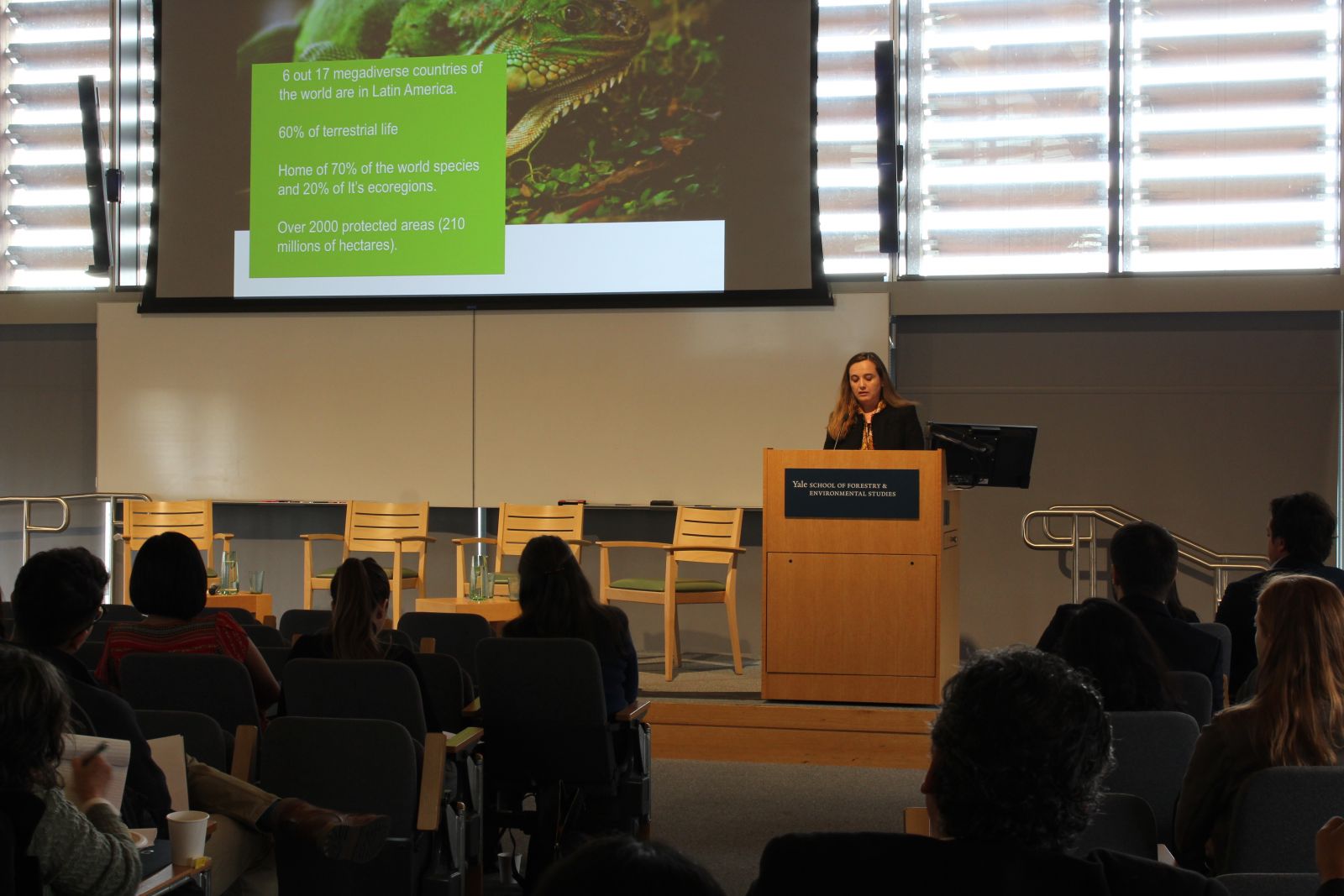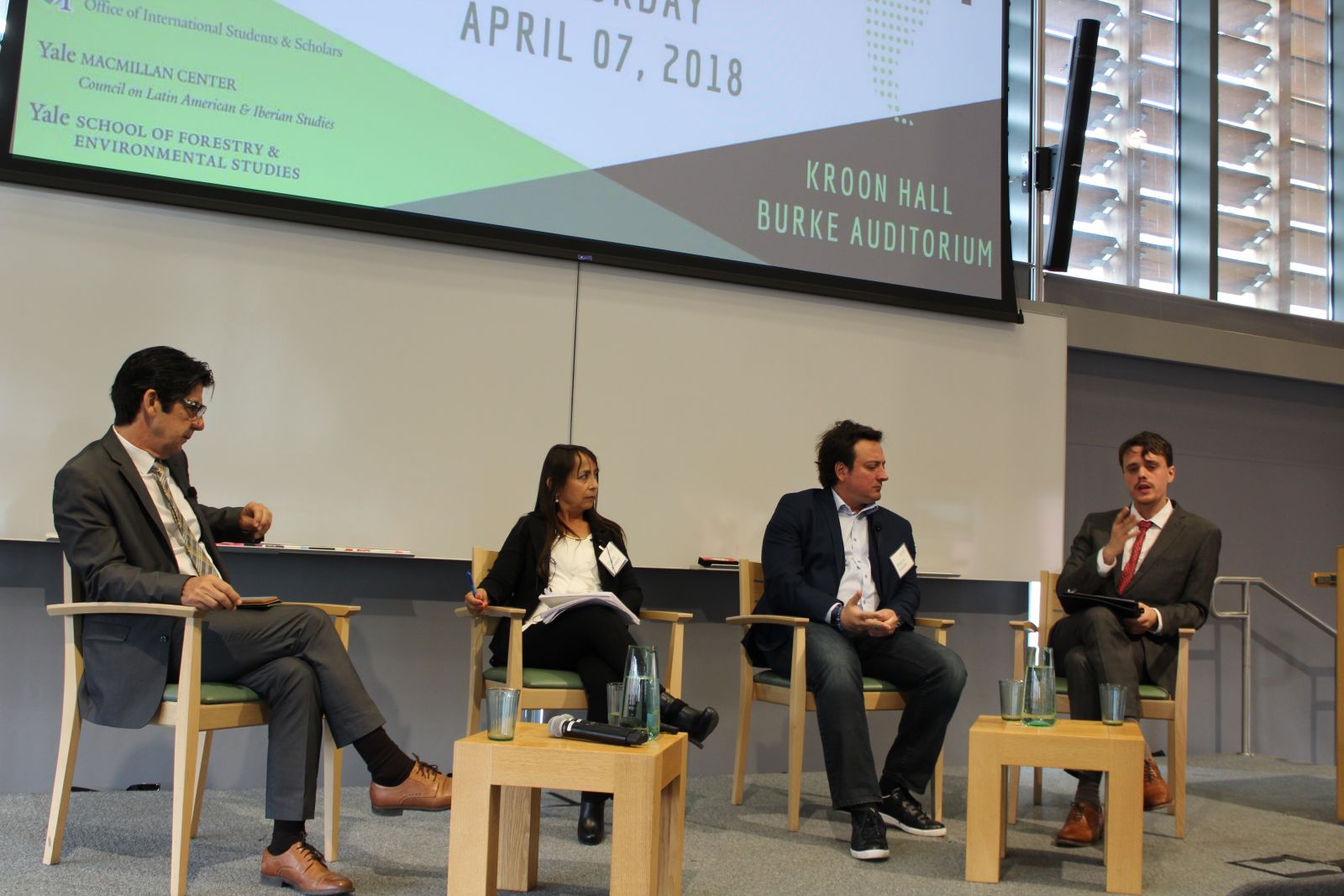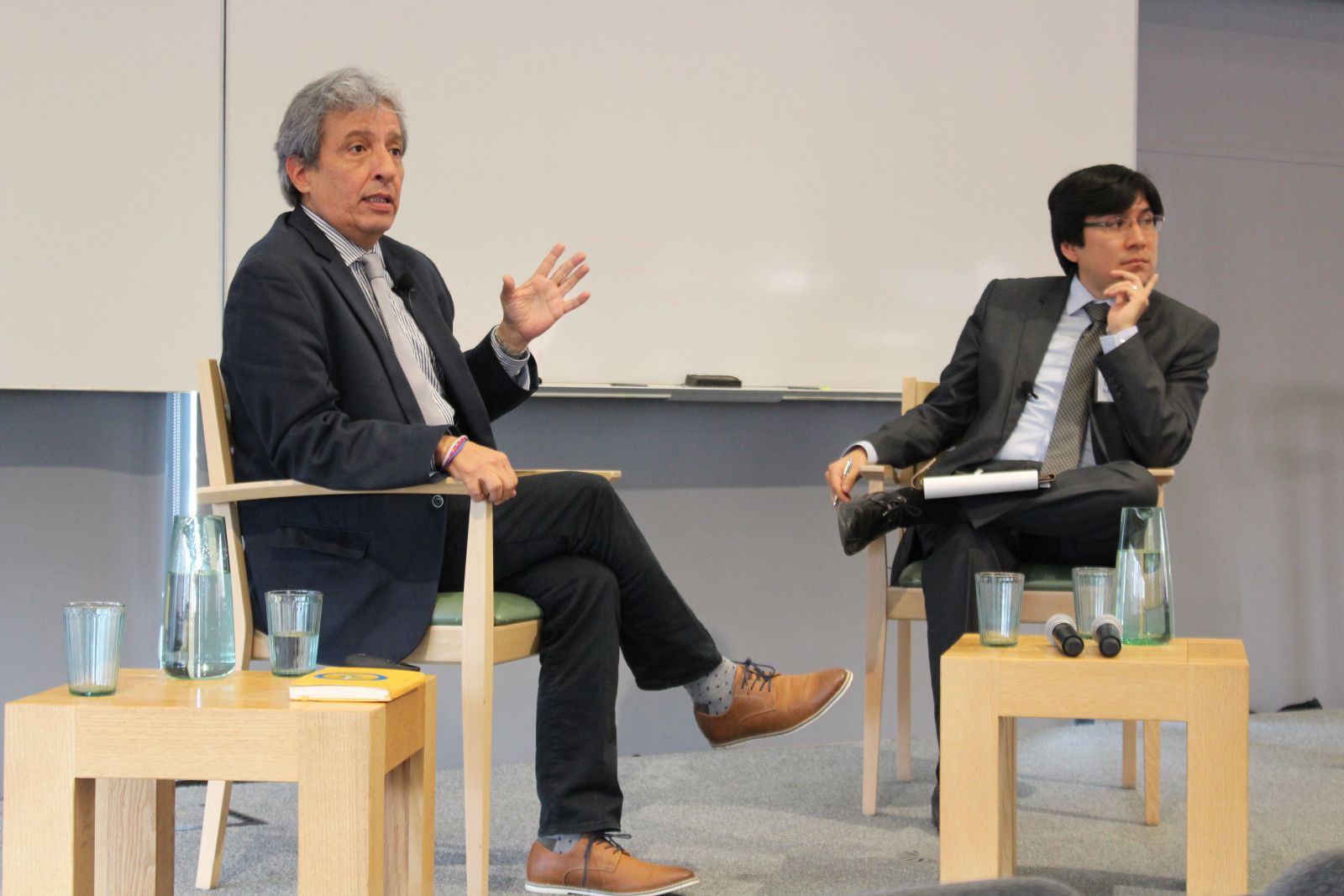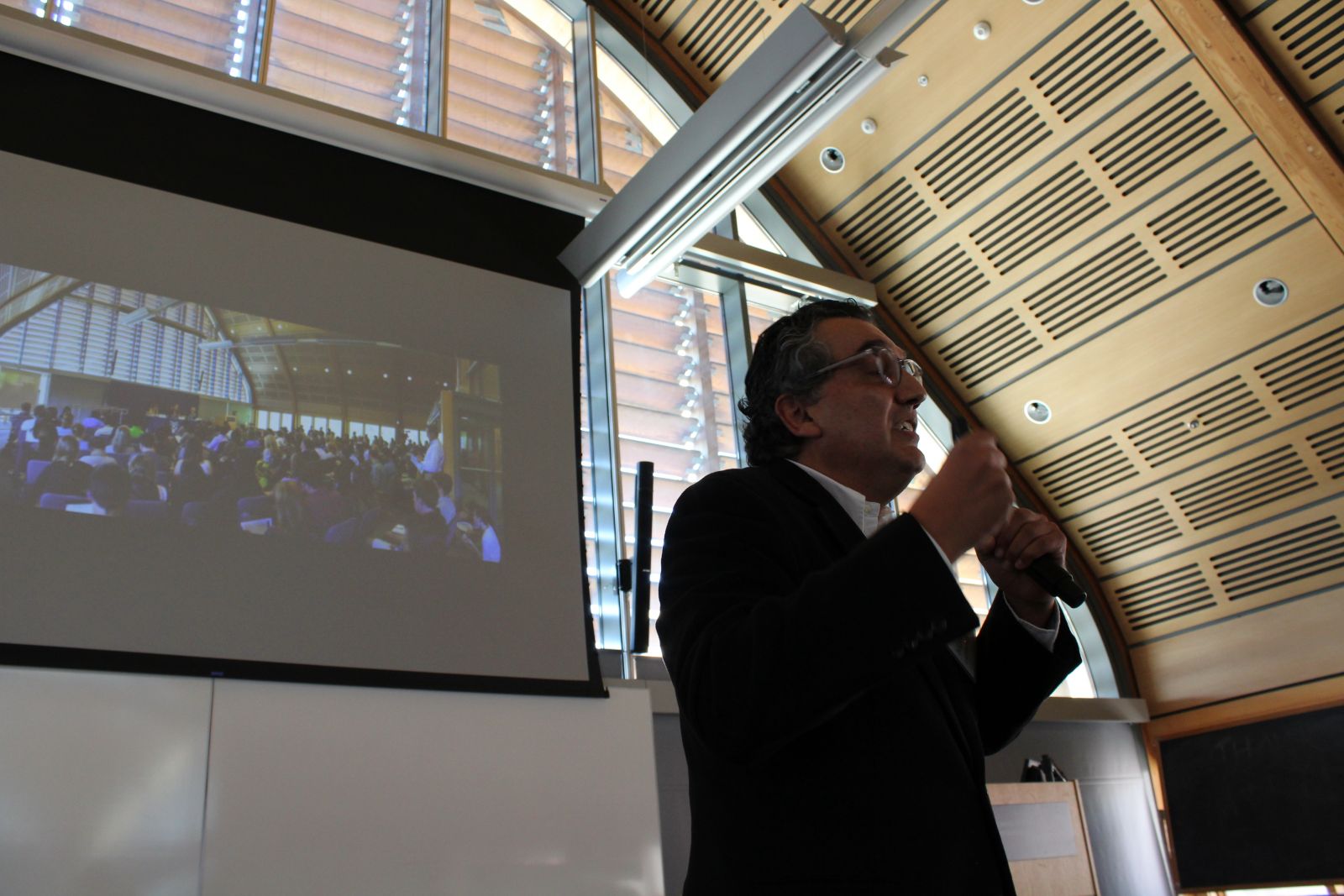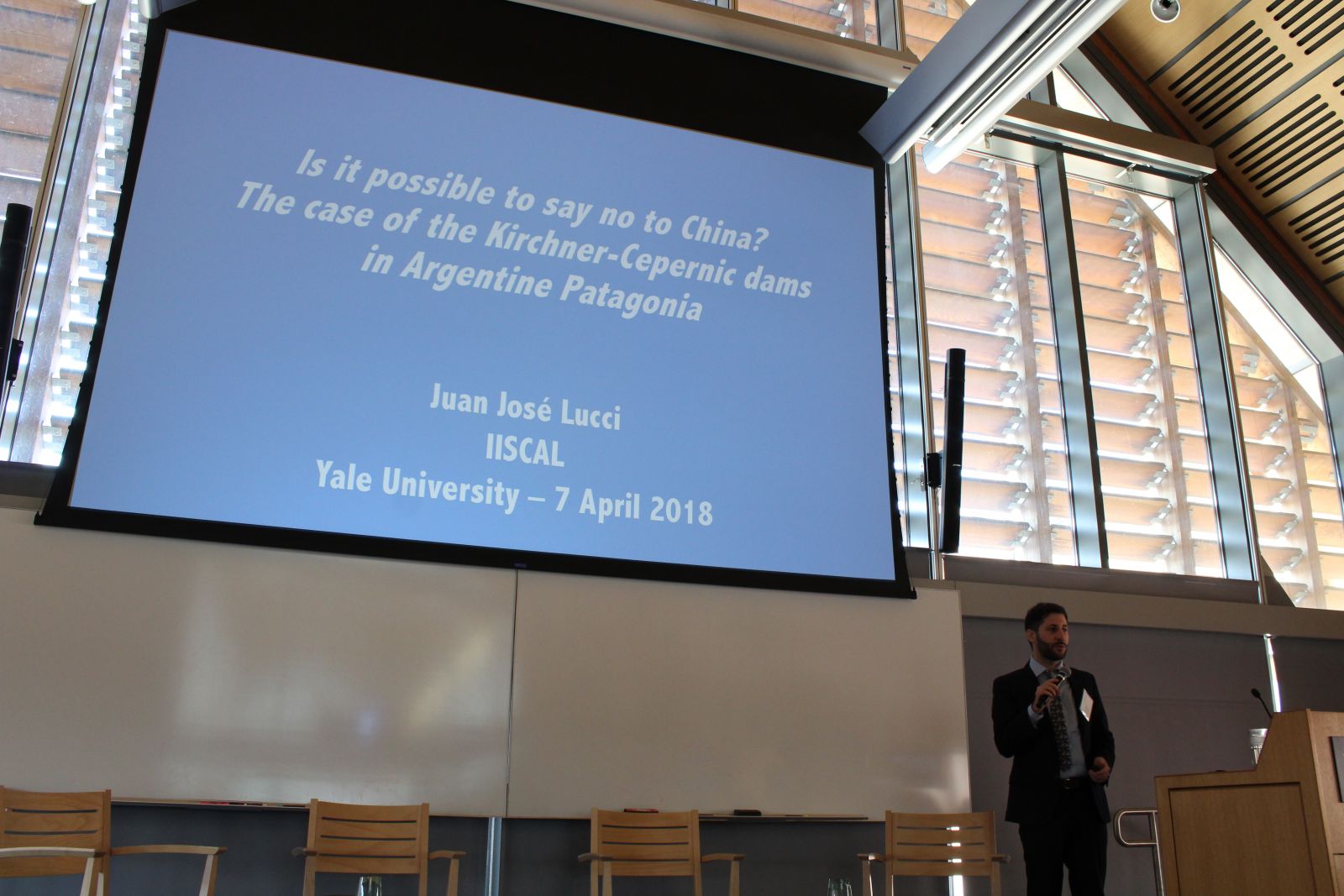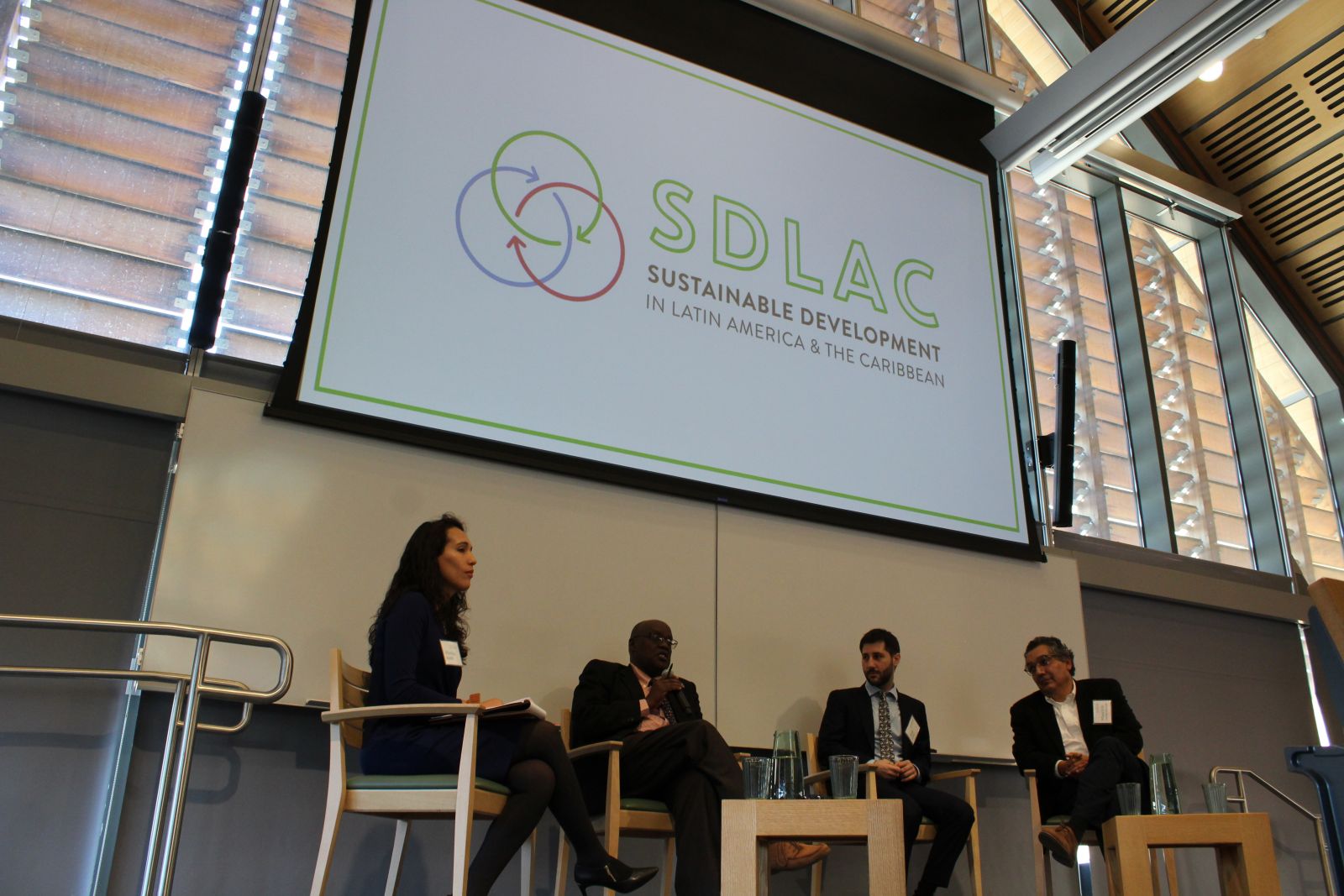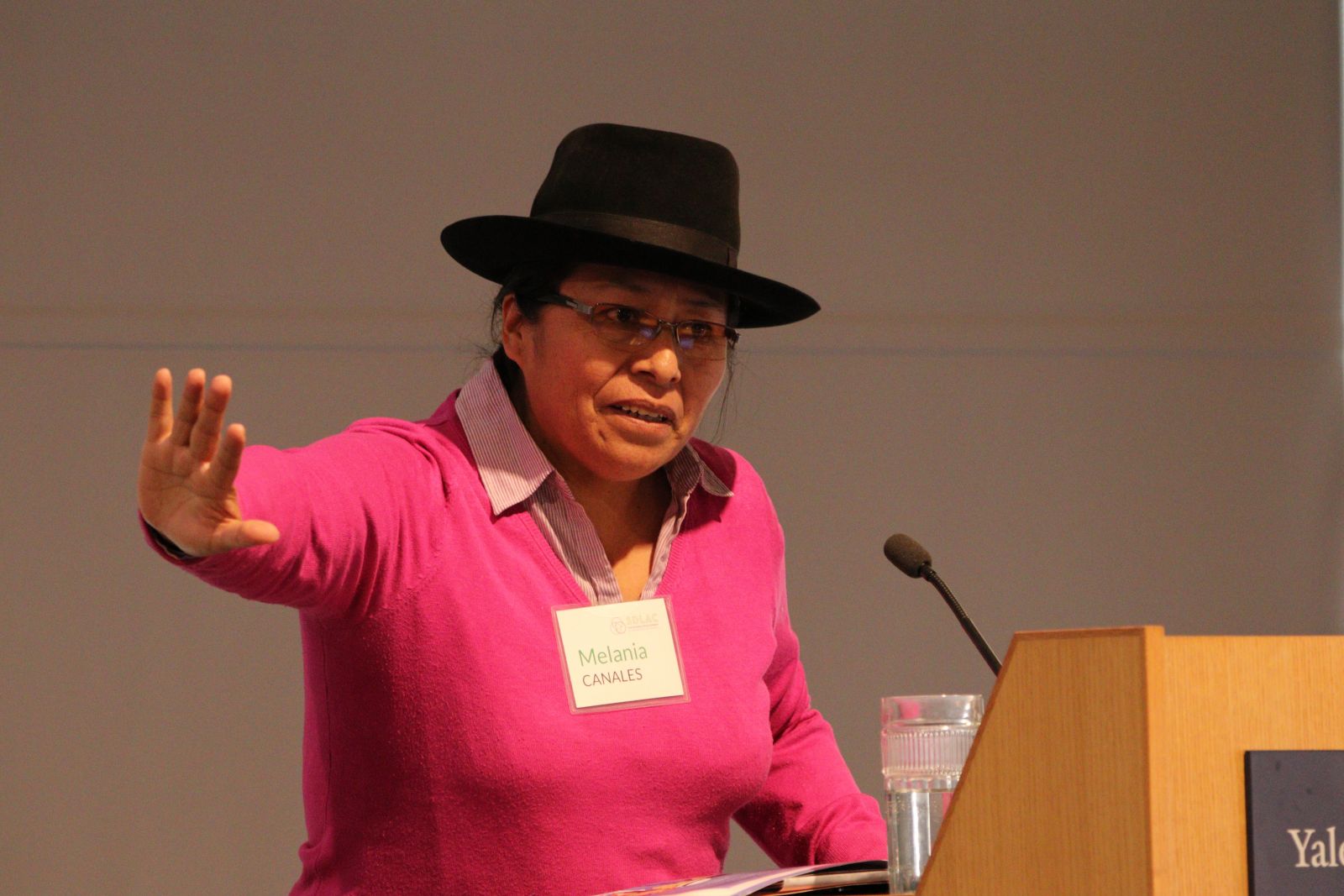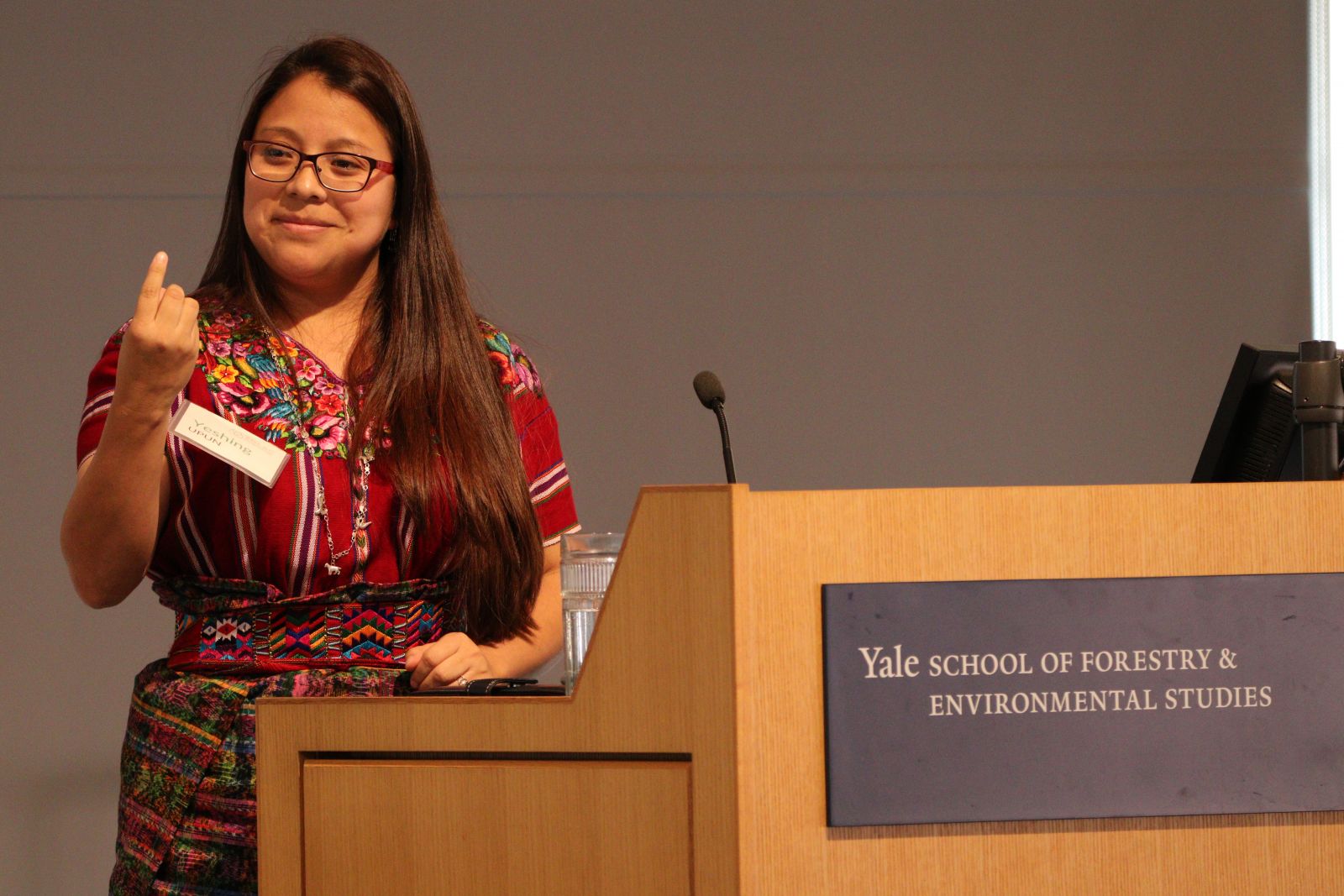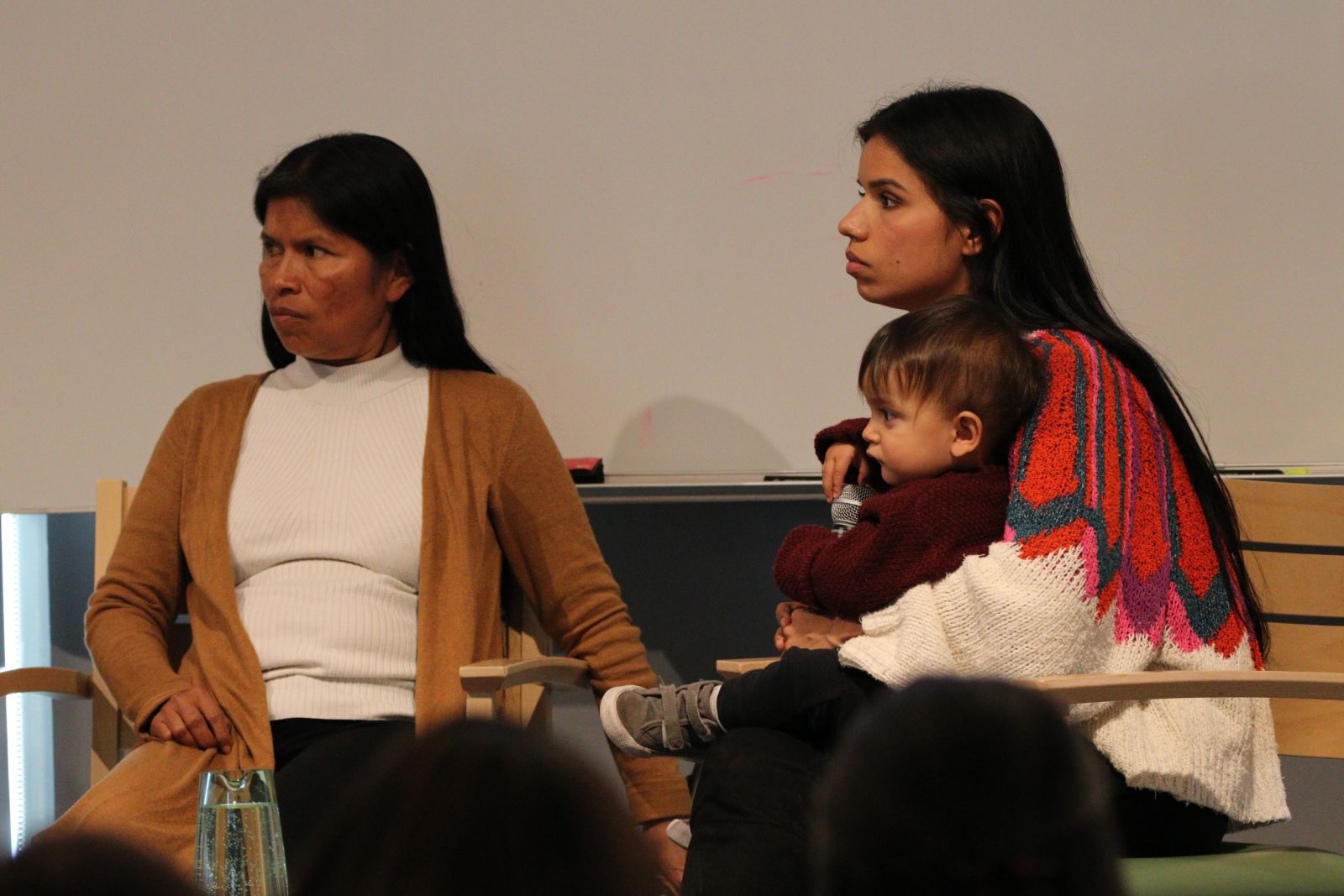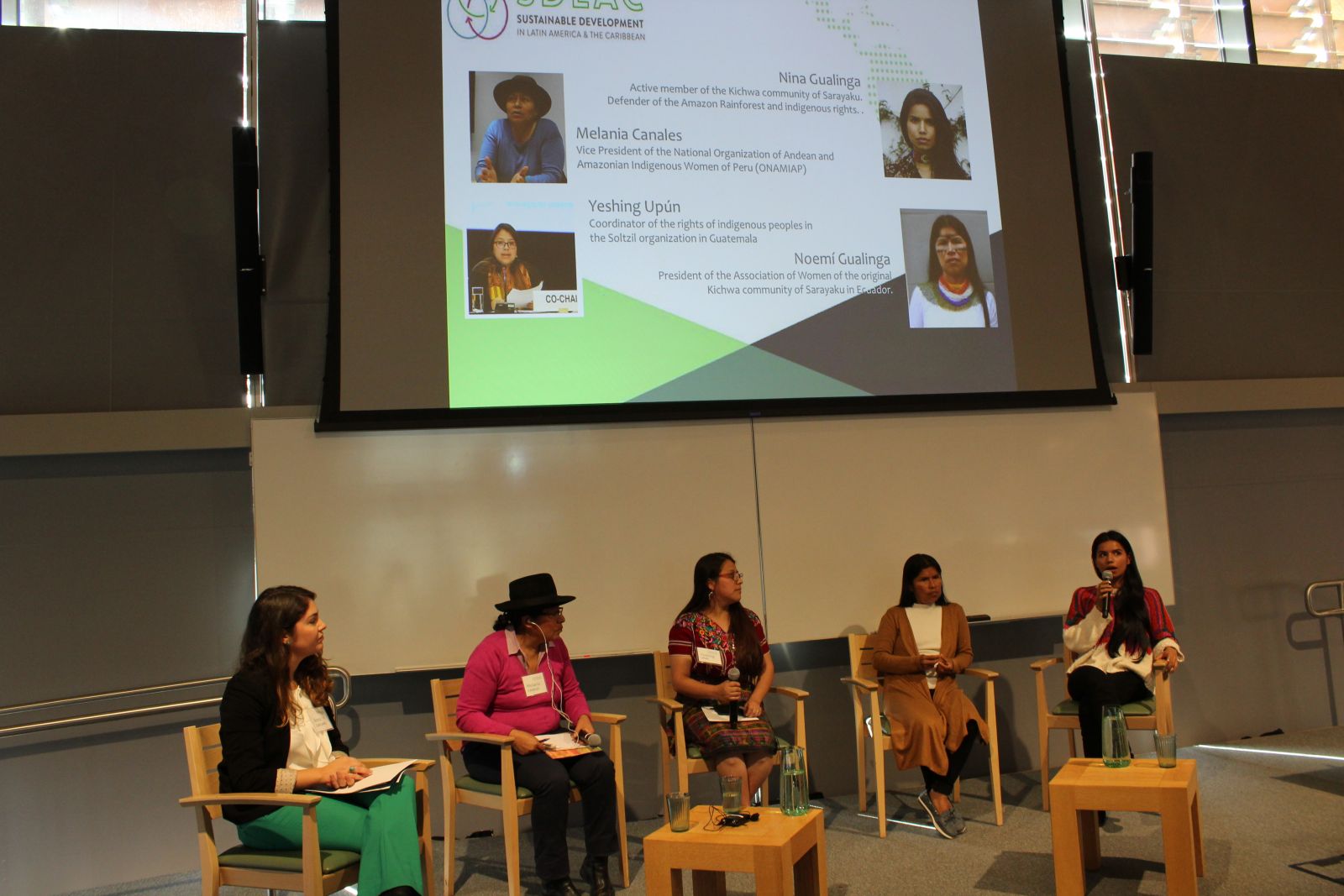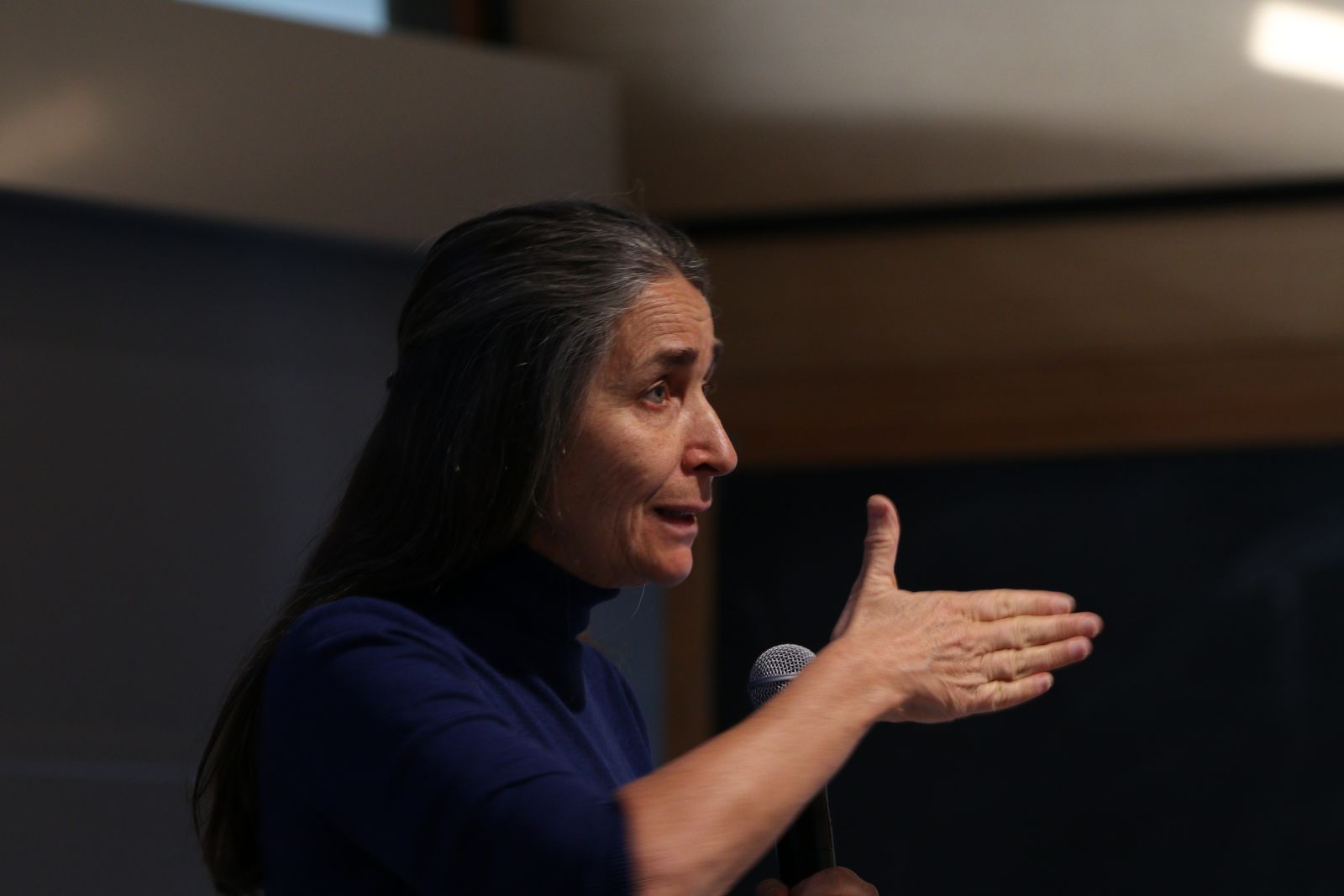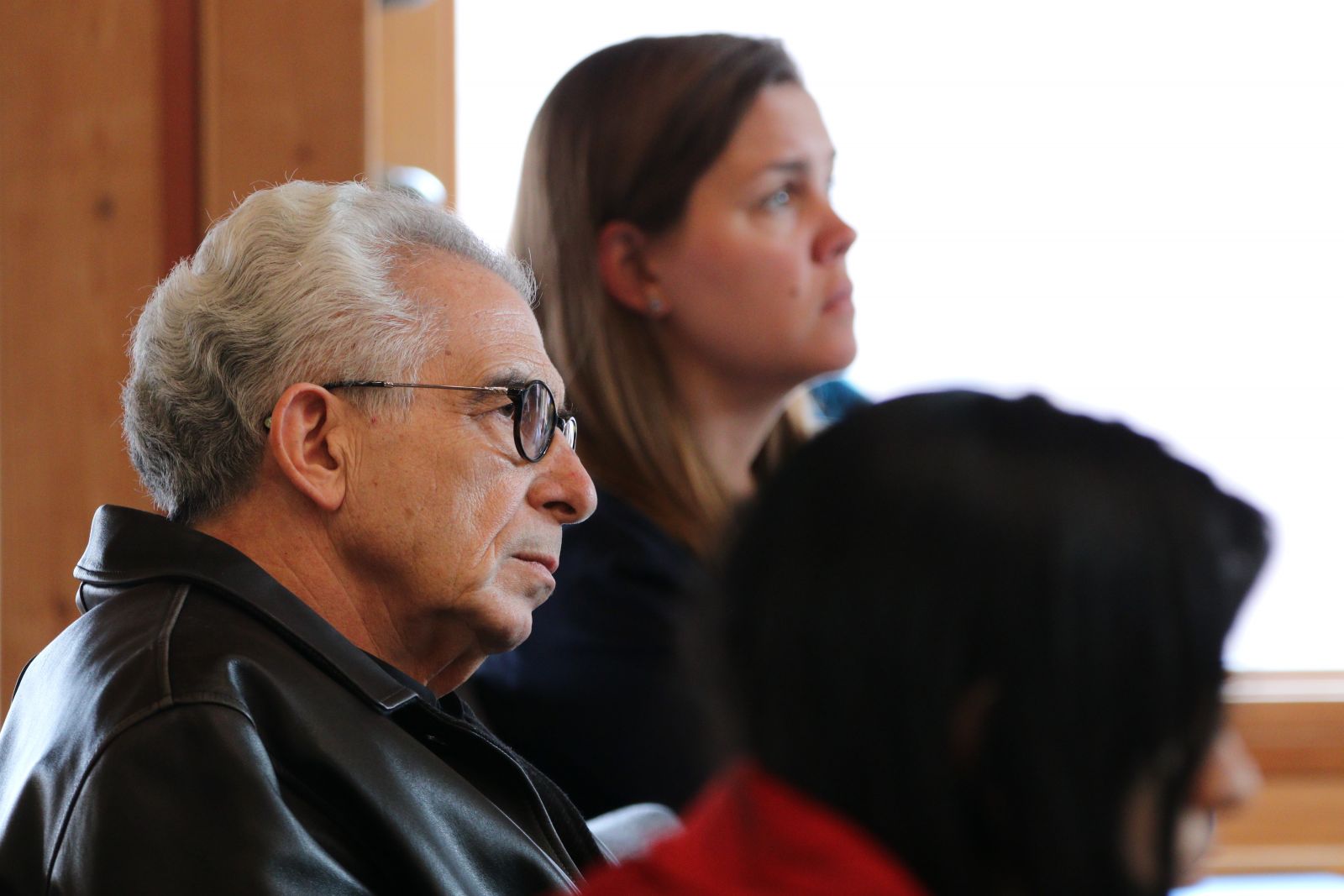"The Silent Leadership" focus of sustainable development conference
The Third Sustainable Development in Latin America and the Caribbean Conference (SDLAC) was hosted on April 7 at the School of the Environment. SDLAC is a student-run initiative, created with the purpose of providing a platform for the Yale Community to discuss issues relevant to Latin America and the Caribbean (LAC). The team of organizers was led by Monica Nuñez Salas, Diego Manya Gutierrez, Anna Maria Carcamo and Camilo Huneeus - all students at F&ES.
This year’s topic, The Silent Leadership, aimed to highlight three types of leaders: LAC professionals whose work is paving the road to global sustainable development, case studies that show challenges and successes from which other regions can learn; and New Leadership, making a special emphasis on female empowerment and indigenous identities.
Susan Stokes, Chair of the Council for Latin American and Iberian Studies (CLAIS) at the MacMillan Center, gave the opening remarks, talking about the ongoing partnership between CLAIS and SDLAC.
The opening keynote speaker was Grethel Aguilar, Yale McCluskey Fellow and Regional Director of IUCN Central America, Mexico and the Caribbean, starting the Conference by presenting LAC as a Land of Opportunities.
The first panel, Co-creating Water Management for Health and Resilience, discussed top-down and bottom-up approaches to water and sanitation. Issues of water diplomacy, data management and community organization were eloquently presented by the panelists.
In an effort to support local businesses, lunch was catered by one of New Haven’s most beloved local businesses: Portabello latin food.
After lunch, the organizers hosted a keynote conversation with Manuel Pulgar-Vidal, who currently leads WWF’s Climate and Energy Program, and formerly served as Peruvian Minister of Environment and President of COP20. Manuel presented on the role of developing countries in reaching the historical Paris Agreement, and the particularities of this negotiation process.
The second panel, Power and Partnerships, focused on LAC’s development in the energy sector; with a particular emphasis on resilience to climate change, opportunities for South-South cooperation and the role that Chinese investments are playing in the region.
Following the break, the last panel focused on New Leadership. Female indigenous leaders from Guatemala, Peru and Ecuador presented their experiences in capacity-building, defense of their ancestral lands and customs, as well as organizational initiatives to ensure female representation within their communities.
Finally, Julia Carabias (recipient of the Belisario Dominguez Mexican Medal of Honor 2017, and former Minister of Environment for Mexico) gave an uplifting presentation about the role that future generations of professionals will play in conservation, sustainable development and equity; focusing on her impactful work in Selva Lacandona. When her the closing speech was over, Ernesto Zedillo (former President of Mexico) came forward to congratulate his friend and the organizing team.
Bottom row (left to right): Javier Gonzalez (MEM ‘19), Diego Manya (SDLAC Chair, MEM ‘18) Grethel Aguilar (IUCN, Yale McCluskey Fellow), Monica Nuñez (SDLAC Chair, MEM ‘18), Dr. Ernesto Zedillo (Former President of Mexico) with Tiam Escobar (son of speaker Nina Gualinga), Anna Maria Carcamo (SDLAC Chair, MEM ‘19), Camilo Huneeus (SDLAC Chair, MEM ‘18), Maristher Guevara (MEM ‘18), Nicholas Fields (MEM ‘19), Alejandra Campo (MEM ‘18), Fabiola Hernandez (MEM ‘19).
Middle row (left to right): Josefina Cobian (MEM ‘19), Melaina Dyck (MEM ‘19), Melania Canales (Speaker, Vice-president of ONAMIAP, Peru), Yeshing Upun (Speaker, Coordinator at Sot’zil Guatemala), Gloria Alvarado (Speaker, President of Fenapru Chile), Noemí Gualinga (Speaker, President of Ecuador Indigenous Women Association), Nina Gualinga (Speaker, Co-founder of Hakhu Project Ecuador), Dr. Spencer Thomas (Speaker, Grenada’s UN Ambassador for Multilateral Agreements), Mauricio Castro (Speaker, former Director of Fundecooperacion Costa Rica), Mauro Nalesso (Speaker, Chief of HidroBID).
Top row (left to right): Renata Lozano (MEM ‘19), Camila Rodríguez (MEM ‘19), Dr. Julia Carabias (Speaker, 2017 Mexican Medal of Honor, and former Mexico Minister of Environment), Emma Rapperport (MEM ‘18), Juan Jose Lucci (Speaker, Bank Information Center China-Latam Initiative - IISCAL).
Not pictured: Manuel Pulgar-Vidal (Speaker, WWF Climate and Energy Lead, former President of COP 20, former Minister of Environment Peru), Max Campos (Speaker, OAS Head of Water Division).
Photo Gallery
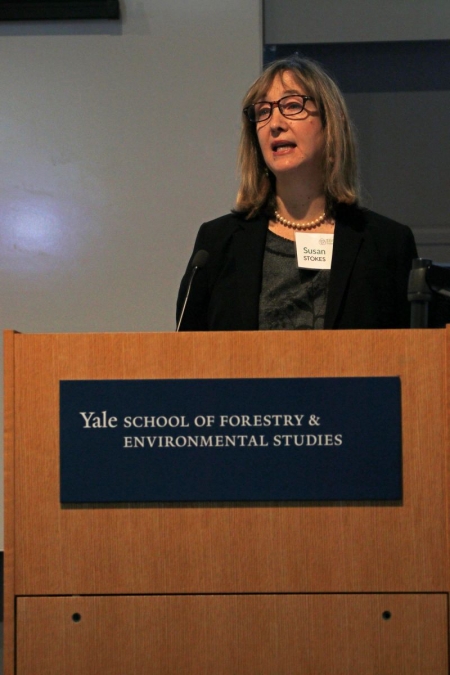 Welcome remarks Susan Stokes, Chair of the Council for Latin American and Iberian Studies (CLAIS) at the MacMillan Center, gave the opening remarks, talking about the ongoing partnership between CLAIS and SDLAC.
Welcome remarks Susan Stokes, Chair of the Council for Latin American and Iberian Studies (CLAIS) at the MacMillan Center, gave the opening remarks, talking about the ongoing partnership between CLAIS and SDLAC.
Opening Keynote - Latin America and the Caribbean: land of opportunities. Grethel Aguilar, Regional Director for Central America, México, and the Caribbean at the International Union for Conservation of Nature (IUCN) and F&ES McCluskey Fellow.
Panel 1 - Water with No Water Access: Co-creating Management for Health and Resilience
The speakers of Panel 1 — Max Campos, Senior Chief for Water Resources at The Organization of American States; Gloria Alvarado, President of the National Rural Potable Water Federation in Chile; and Mauro Nalesso, HydroBID Support Center Coordinator at The Interamerican Development Bank — in a conversation led by Camilo Huneeus (MEM ’18).
Keynote: Conversation with a Global Leader Manuel Pulgar-Vidal, Global Climate and Energy Program Leader at the World Wildlife Fund and former President of the United Nations Climate Change Conference COP20, in a conversation led by Diego Manya (MEM ’18).
Panel 2 - Power and Partnerships: The Influence of Latin America in Global Access to Affordable and Clean Energy
Spencer Thomas, Grenada’s Ambassador and Special Envoy for Multilateral Environmental Agreements, presented the Caribbean’s quest for resilient energy security.
Mauricio Castro Salazar, Former Director of Fundecooperación para el Desarrollo Sostenible, gave a dynamic presentation about international cooperation. He shows the audience a picture of themselves, sitting in Burke Auditorium (where the conference was held), to emphasize the importance of young professionals in achieving sustainable development goals.
Juan Lucci, researcher at the Bank Information Center’s China-Latin America Sustainable Investments Initiative, gave an eye-opening presentation about the current trends of Chinese investments in Latin America, using a case study about hydropower infrastructure in Argentina.
The speakers in Panel 2 had a discussion on Latin America and the Caribbean’s challenges and opportunities, led by Monica Nuñez (MEM ’18).
Panel 3 - New Leadership, Female Empowerment and Capacity Building in Indigenous Communities
Melania Canales, Quechua Peruvian woman, Vice-President at ONAMIAP, shared lessons from her more than 20 years of experience working on capacity building, empowerment and female representation within indigenous communities.
Yeshing Upun, a Mayan Kaqchikel woman from Guatemala, Lawyer and Coordinator at Sotzil, talked about initiatives that bring traditional knowledge and science together, to protect the collective rights of the Mayans for integral development, a model of development that includes their culture.
Noemi and Nina Gualinga, leaders from the Kichwa Sarayaku Community in the Ecuatorian Amazon, shared their insights on political representation of indigenous women in their country. Here they are pictured with Nina’s son, Tiam.
All the speakers of Panel 3 came together in a conversation about female indigenous identities and empowerment, facilitated by Anna Carcamo (MEM ’19).
Closing Keynote
Julia Carabias, who was most recently awarded the 2017 Belisario Domínguez Mexican medal of honor, gave an inspiring keynote speech, targeting young environmental professionals.
Ernesto Zedillo, former President of Mexico, attended SDLAC. Our closing keynote speaker, Julia Carabias, served as Minister of Environment during his time as President.
